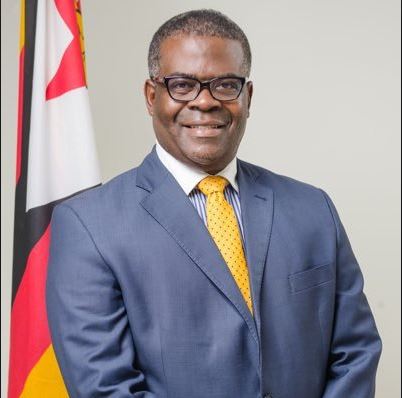
BY FIDELITY MHLANGA
A fresh dispute over the licensing of fuel importers has erupted with a group of local players allegedly sidelined by the Zimbabwe Energy Regulatory Authority (Zera) petitioning the government to review the process.
The Direct Fuel Imports (DFI) Group Zimbabwe said Zera’s licensing regime was shrouded in secrecy and promoted monopolistic tendencies in the fuel retail sector.
After four months of haggling over new regulations, Zera early this month granted import fuel licences to mostly major fuel companies.
This incensed the DFI Group whose members were excluded and are now pushing for the process to be reviewed.
DFI Group members say they were also abandoned by the Indigenous Petroleum Association of Zimbabwe (Ipaz), which negotiated on behalf of small fuel dealers, but “clandestinely” endorsed the contentious Zera regulations.
The petition directed to Energy and Power Development minister Fortune Chasi said the process used by Zera to license fuel importers was opaque.
“We write to register our concern and objection to the way the Zimbabwe Energy Regulatory Authority (Zera) is handling the licensing process for 2020 procurement licences,” said DFI Group in the petition gleaned by Standardbusiness.
- Chamisa under fire over US$120K donation
- Mavhunga puts DeMbare into Chibuku quarterfinals
- Pension funds bet on Cabora Bassa oilfields
- Councils defy govt fire tender directive
Keep Reading
“It came as a shock to 2019 procurement licence holders when Zera secretly announced in a communiqué to (Zimra) on 5th May 2020 an ‘Ivy League’ of secretly licensed procurement companies,” the DFI Group said.
The term Ivy League refers to a group of the most prestigious colleges in the United States.
Some of the top fuel companies that were given licences by Zera include Total Zimbabwe, Glow Petroleum, Ram Petroleum, Genesis Energy, Vivo Energy, Zuva Petrolelum, Sakunda Petroleum and Redan Petroleum.
Zera granted the licences after Ipaz, which was leading the negotiations on behalf of indigenous fuel dealers and had earlier approached the High Court over the issue, backed down from its position where they demanded a relaxation of tough new regulations that included $2 million fees per annum, owning 25 fuel stations and a performance bond of $30 million and proof of 10 million litres of past imports, among others.
Ipaz chairman Aaron Chinhara, through a communique to Zera, agreed to certain terms set by the regulator that included the $2 million licence fees and proof of 10 million litres past imports.
Ipaz and Zera also agreed to a reduced threshold for dealers to own 15 fuel stations instead of the original 25.
The small-scale dealers asked Chasi to direct Zera to renew last year’s licences until the dispute was resolved.
“We further request you to direct Zera to extend 2019 procurement licences as they have done since January 2020 until all issues to do with requirements have been agreed,” the DFI Group said.
The group, which says its members imported 120 million litres of fuel in the past three years and do not rely on central bank foreign currency allocation to import fuel, said Zera’s actions contravened the law.
“The communiqué from Zera has the hallmarks of a decree from a medieval overlord,” the group added.
“It violates all of the following: the provisional order issued by High Court Judge Honourable Mr Justice Musakwa.
“Zera’s own known laid-down procedures as stipulated in part VI Section 35 (1) and 36 (1) of the Petroleum Act 11/2006.
“Part Il sections 4 (e) and (f) of the Petroleum Act which requires Zera to ensure industry competition and growth,” the DFI Group said.
The High Court in March ordered negotiations between the parties after Ipaz had filed an application seeking nullification of the new regulations.
The DFI Group said the move by Zera contravened the Energy Regulatory Act (Chapter 13:22), which mandates the regulator to promote and maintain effective competition in the petroleum industry and to encourage the expansion of the fuel industry.
The organisation said Zera was acting against the Competition Act (Chapter 14:28), which advocates for fair competition in any trade as well as the central bank policy that encourages companies with free funds to import fuel to relieve pressure on the interbank market.
“We note that the Petroleum Act has no provision concerning the setting/increase of statutory fees,” the said.
“We urge you, Honourable minister, to correct this anomaly to harmonise the Act with other laws.
“This will remove the corruption currently surrounding the issue of procurement licence fees,” said DFI Group.
“In the broad light of day we are seeing Zera moving through the industry like the Grim Reaper to claim the scalps of local companies and bring others into bondage at the behest of the oligarchy.
“We recommend exemplary disciplinary action against the individual perpetrators of these violations to avoid future occupants of these high offices repeating the same.”
The group also questioned certain regulations, which it said were meant to cut off new entrants into the fuel industry while eliminating the small-scale local players.
“On the 10 million litres of past imports – This requirement is a double-edged scythe of the Grim Reaper, which will cut off new entrants into the industry while also eliminating the smaller local players leaving the 8 ‘Ivy League’ members to capture the industry,” the dealers complained.
“Given the chronic fuel shortage in the country (do not be misled by reduced demand caused by the lockdown), the country needs as many players as possible to be encouraged to participate.”
Efforts to get a comment from Chasi were fruitless as he did not respond to questions sent to him.











